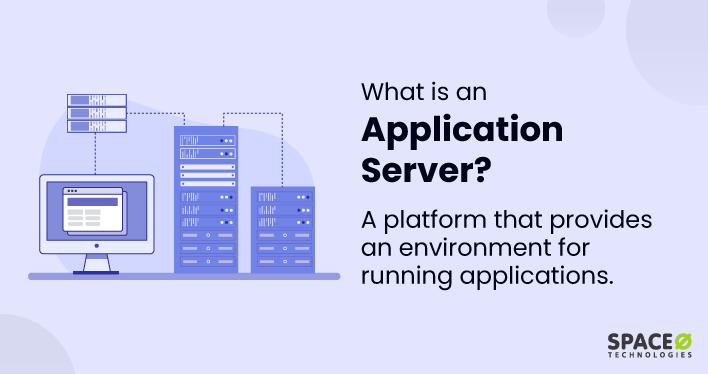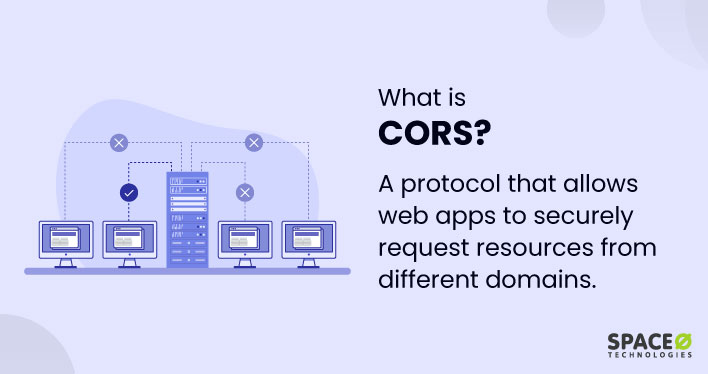Table of Contents
What is an Application Server?
An application server is a software framework that provides an environment for developing, deploying, and running business applications and web services.
Application server plays a crucial role in web application architecture by acting as an intermediary between the front-end user interface and the back-end systems. It enables the execution of business logic, data processing, and communication with external resources.
For Example, Apache Tomcat
Apache Tomcat is an open-source application server specifically designed for Java-based web applications. It hosts Java Servlets, Java Server Pages (JSP), and Java WebSocket APIs, and even supports Active Server Pages (ASP) for dynamic web content generation. Tomcat acts as a container for these components, managing incoming HTTP requests and routing them to the corresponding Java or ASP components. It adheres to Java Servlet and JSP specifications, provides security configurations, and optimizes performance to ensure the efficient execution of web applications.
Let’s understand, the types of app servers.
How Does an Application Server Work?
Here are the 9 steps involved in the functioning of an application server with more descriptive headings:
Creates a Runtime Environment for Applications
The application server sets up a runtime environment to host, execute, and manage applications, taking care of their lifecycle, resource allocation, and other essential requirements.
Handles Incoming Client Requests
The application server receives and processes requests from clients such as web browsers or mobile apps, typically through a web server. It interprets the requests and identifies the appropriate application components to process them.
Routes and Executes Business Logic
An application server like an Apache HTTP server directs the client’s request to the relevant application component, which processes the request by executing the necessary business logic, which may involve querying the application database, interacting with external APIs, or other tasks.
Facilitates Communication with Middleware Services
Application servers utilize middleware services to enable smooth communication between various components of an application, such as databases, web services, and other systems, effectively managing the integration of different systems and services.
Enforces Security Measures and Access Control
Application servers implement built-in security features like authentication, authorization, and encryption to safeguard sensitive data and ensure that only authorized users can access specific resources. They manage access control policies, user credentials, and secure communication between clients and a database server.
Coordinates Transactions for Data Integrity
Application servers handle complex database access by managing transactions across multiple systems and databases. They ensure data consistency and reliability, even in the event of system failures or errors, thereby maintaining data integrity throughout the process. By providing a robust infrastructure for handling complex database operations, application servers ensure that critical data operations are executed efficiently, contributing to the overall reliability and performance of the applications.
Generates and Sends Responses to Clients
After processing the request and executing the appropriate logic, the application server generates a response, which it sends back to the requesting client, providing the necessary information or results.
Optimizes Scalability and Performance
Application servers are designed to adapt to fluctuating workloads and user demands, scaling applications as needed by allocating and deallocating resources. They may employ features like caching, load balancing, and resource pooling to enhance performance and optimize resource usage.
Streamlines Monitoring and Application Management
Application servers offer tools for monitoring and managing applications, enabling administrators to track performance, detect issues, and carry out updates and maintenance tasks efficiently.
Now, let’s understand the benefits of using an application server.
5 Benefits of Using Application Servers
Using an application server offers several benefits for developers and businesses, as they provide an environment for creating, deploying, and managing applications and web services. Here are the 5 key benefits of using an application server include:
- Streamlines Development Process
An application server along with the underlying operating system offers built-in tools, libraries, and APIs, simplifying the development process by managing the underlying infrastructure and common tasks. This allows developers to concentrate on creating logic and application functionality, leading to faster development times, reduced costs, and increased productivity. - Enhances Scalability for Growing Applications
An application server supports automatic scaling, adjusting resources to handle fluctuating workloads and user demand. This ensures consistent performance, even during peak times, and enables businesses to accommodate increased user demand without significant infrastructure investments. - Optimizes Performance and User Experience
An application server includes performance optimization features, such as caching, and resource pooling. These features can result in faster response times, better user experiences, and more efficient resource utilization. - Provides Seamless Middleware Services for Application Components
Application servers provide middleware services that facilitate communication between different components of an application, such as databases, web services, and other systems. This allows developers to focus on building application logic rather than dealing with low-level networking and communication details. - Offers Robust Security Features to Protect Sensitive Data
Application servers offer security features, including authentication, authorization, and encryption, which help safeguard sensitive data and ensure that only authorized users can access specific resources. This can help businesses comply with data protection regulations and reduce the risk of data breaches.
Streamlining the development process and enhancing the scalability of application servers enables businesses to create secure applications. If you are interested in learning more about the underlying structure of these applications, you can refer to our post on what is web application architecture for a comprehensive understanding.
In conclusion, an application server streamlines the development, deployment, and management of business applications and web services, offering scalability, performance optimization, and robust security features. By using app servers, developers can focus on creating application functionality and business logic, resulting in increased productivity and more efficient resource utilization.







